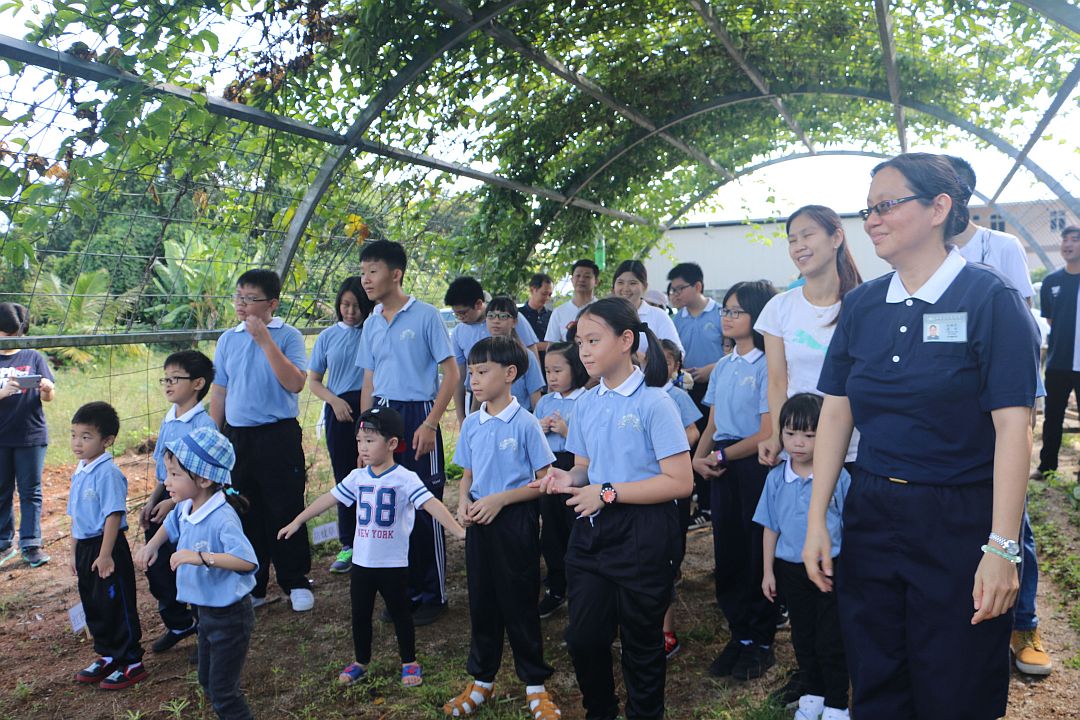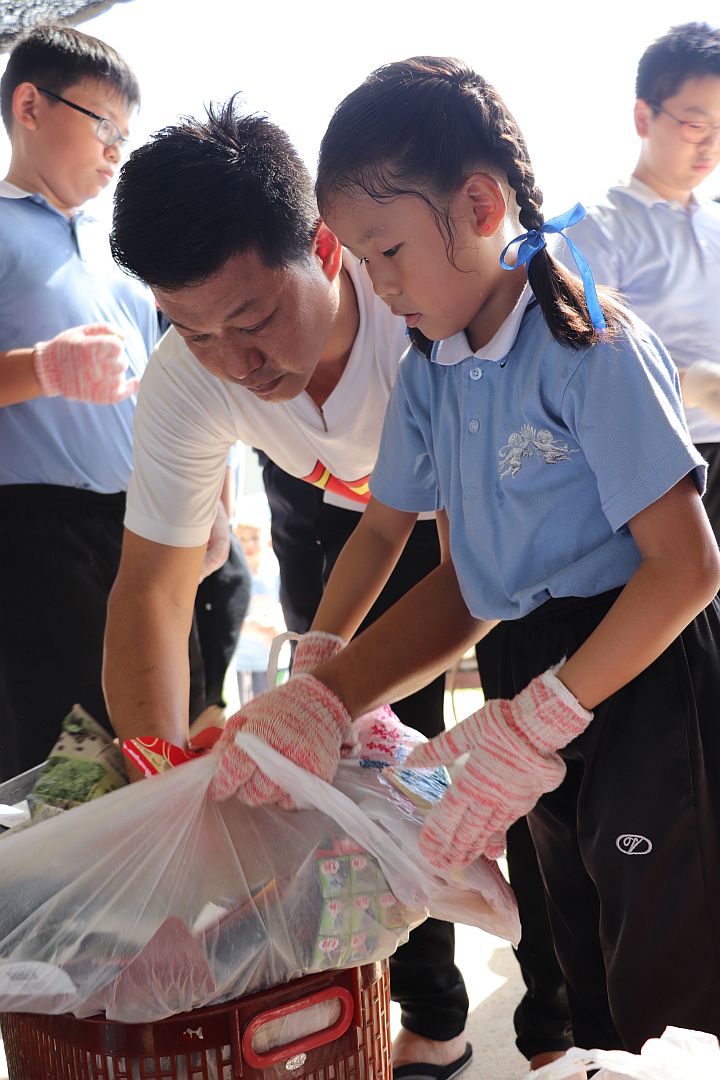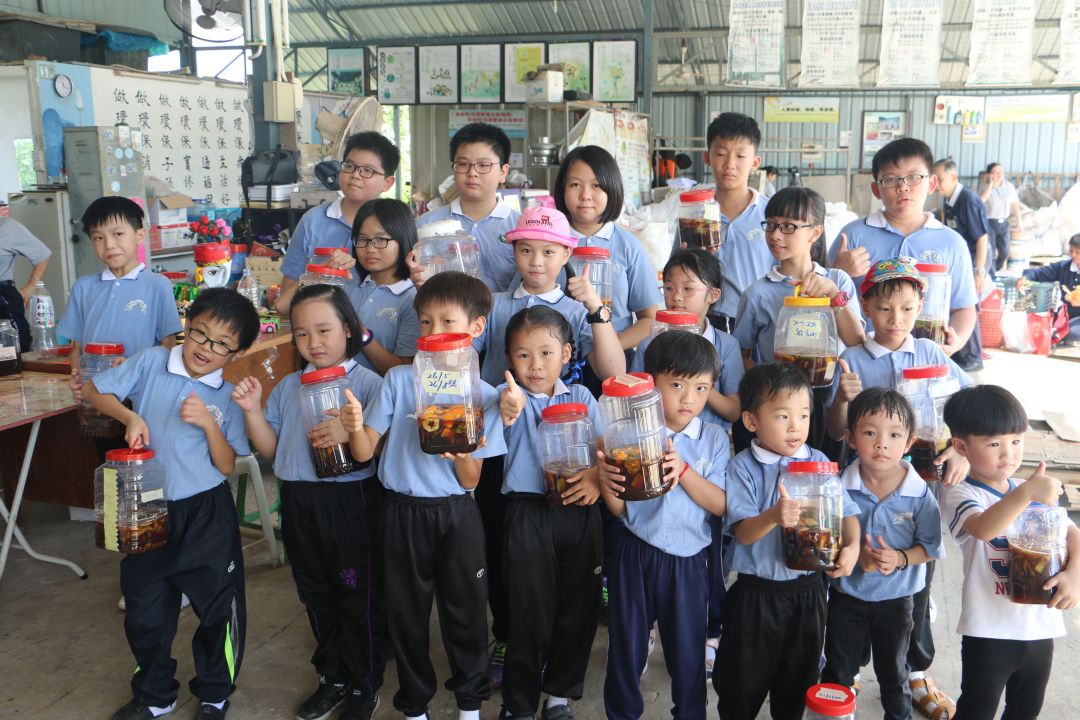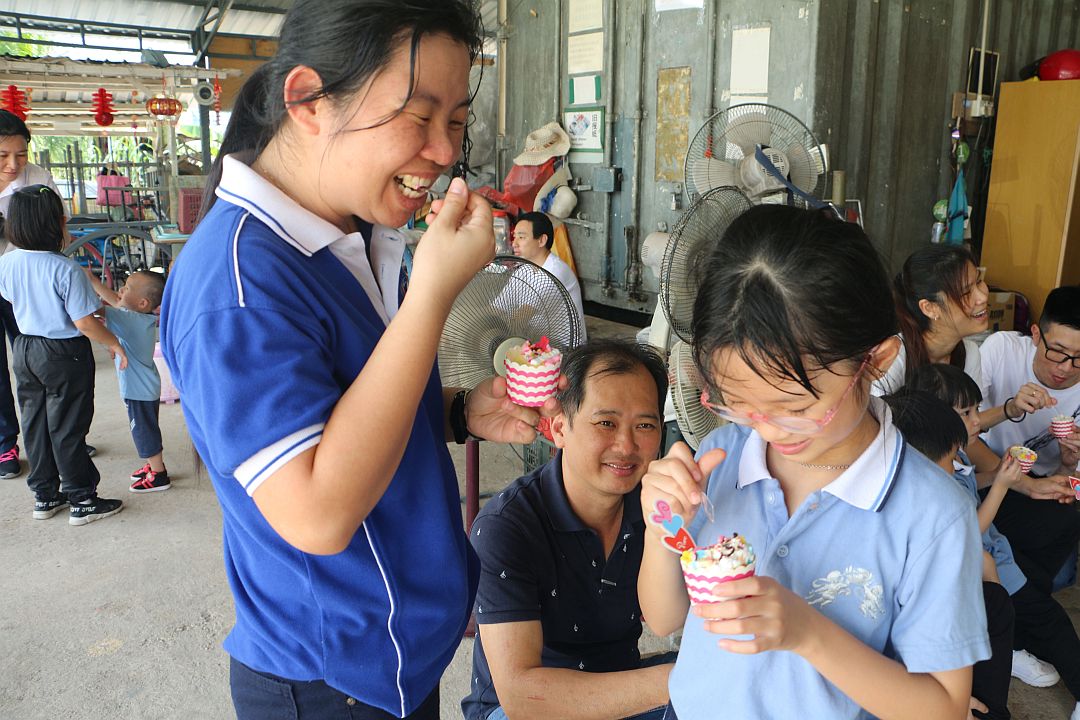In this time of advancing technology, children are exposed to the Internet since young. Some are even addicted to video games and neglected their studies or lose touch with Mother Nature staying indoors for prolonged hours. The reduction in parent-child bonding time also contributes to parent-child issues. Thus, the Education Group of Tzu Chi Kota Tinggi organized an outdoor learning activity to allow the participants of Parent-child Bonding Class an opportunity to connect with nature.
On May 26, 2019, volunteers led pairs of parent-and-child from Tzu Chi Kota Tinggi’s Parent-child Bonding Class (PCBC) to the Tzu Chi Recycling Education Centre, to enable them to spend some time learning in the outdoors. While they were there, the participants learnt to sort the recyclables, grow vegetables to understand the farming process, and make enzymes from fruit peels in an effort to preserve water quality.
Volunteer Toh Ya Lee shared the purpose of the outdoor lesson: “This activity brought parents and children out to get in touch with nature and to learn things outside the classrooms. The farming experience helps the children to appreciate the farmers’ hard work; and by sorting out recyclables, they will understand that recycling can be done from home.” She added that practical experience can enhance the children’s understanding on what are taught.

Volunteer, Toh Ya Lee (far right) said that the outdoor activity was designed to enable the children to get in touch with and learn about nature. [Photograph by Chow Khoon Kiong]
Experiencing the hard work of farming
At about 9 o’clock on the lovely morning, 41 parents and children arrived at the Recycling Education Centre where they enjoyed a morning exercise to the tune of “Sha-la-la”, led by volunteer Li Gui Qing. Then, they learnt how to plant sweet potato leaves and sow the seeds of okra and Chinese spinach under the guidance of volunteer Li Yi Ping.
Yi Ping, who is in his 70s, is a farmer with decades of experience in fruit farming. He explained the techniques of planting sweet potato leaves and demonstrated the correct way of planting the seedlings. Following that, everyone had their hands-on experience, digging a hole, inserting the seedling and covering it with soil. Although they were drenched in sweat, the children enjoyed themselves tremendously and eventually understood the hard work of the farmers.
Chong Yu Jie, a first year participant of the PCBC, participated in the activity with his parents. He felt hot and sweaty working in the farm, and found the hoe too heavy for him to handle. He said, “It’s exhausting for the farmers to cultivate vegetables under the burning sun. I’ll finish all the vegetables on my plate from now on.” He also said that he will take more vegetables, having understood how they could benefit his health and vision.
A cute and cheerful Leo Jia Qi participated in the outdoor lesson, accompanied by her father. Although the weather was hot and the planting chore was tiring, the hands-on experience was fun for her. She expressed earnestly, “I’ll not waste any food from now on.” She also learnt a lot from sorting out recyclables and making enzymes.

Leo Jia Qi sorted out the recyclables accompanied by her father. [Photograph by Chow Khoon Kiong]
Preserving the rivers
After the farming activity, volunteers Zhang Cai Feng and Du Li Zhu introduced to the participants the different categories of recyclables and how to sort the items. Then, everyone started sorting out the recyclables and consulted the volunteers when they were unsure of the category. Soon, a cartful of recyclable items were sorted accordingly.
Next, the participants were brought to the enzyme-making area, where volunteer Yoo Moy Kiew shared with them the process of enzyme-making. “The ingredients in this enzyme include fruit peels, brown sugar and water…” Everyone listened attentively while the steps and proper ratios were explained before they proceeded to make the enzyme themselves. They also marked the date it was made on the plastic containers as reminder when the enzymes will be ready for use three months later.
“The enzyme can be used for floor cleaning, laundry, dishwashing, air purification, and more,” shared Moy Kiew, adding that turning food scraps into multi-purpose detergents can also help cut down household expenses. Many of the participants were convinced to use enzymes as cleaning agents to preserve water quality.
Chan Jing Hui, who has been attending the PCBC for three years, has greatly benefitted from the lessons, like being more courteous and humble. He found enzyme-making the most interesting in this outdoor learning activity. He now knows that fruits peels can be made into environmentally-friendly enzyme, which can be used as multi-purpose cleaning agents. He also learnt that one needs to open the lid of the container occasionally to release the gases from the fermentation process in order to produce pure enzyme. He plans to make and share this eco-friendly enzyme with his friends.
His mother, Yao Siew Ling, informed that although she does collect recyclables at home and send them to a recycling point, she was unaware of the efforts involved in sorting out the recyclables before they could be sent for sale. Through the hands-on activities, the children realized that they should cherish food and every object, for they do not come by easily.

A group photo of the children after completing the enzyme-making activity. [Photograph by Cheong Siew Wai]

Yao Siew Ling (left) remarked that the activity helped the children understand that the food they eat and the things they use do not come by easily and should not be taken for granted. [Photograph by Cheong Siew Wai]
A parent, Koo Siew Gek and her husband are both busy with their careers and hardly spend time with their children outdoors with nature. She was pleased to see the children learning happily and agreed that such meaningful outdoor activity will instil the love for the environment in the children, teach them to cherish the limited Earth’s resources, and promote parent-child bonding.
•
After spending about three hours outdoors, the children were sun-kissed and sweaty. But, they have gained knowledge. Everyone enjoyed their lunch before returning home with their DIY enzymes.




